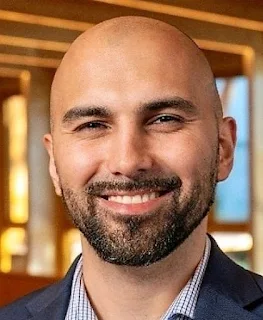Three friends thought so. A Kenyan
(Aaron Amakobe Shikhule), an Australian postgraduate (David Cyrus) and an
artificial intelligence engineer, Arend Groote from Holland, have developed a
new tool to combat academic dishonesty in the age of rapidly advancing AI
technology. The tool, called AICheatCheck, is designed to detect and prevent
the use of AI-generated text in academic assessments, protecting the integrity
of educational institutions.
The team conducted surveys of
university professors and students to gauge the size of the problem. The
results showed that while many professors and students were aware of the
potential for AI-generated text, they were not aware of the limitations of
current anti-plagiarism tools like Turnitin. Nearly all respondents said they
wanted an AI text detection tool as soon as possible.
According to David Cyrus: “The idea
for the tool was born out of a playful experiment conducted when I used GPT-3
to write a blog post and challenged my colleagues to guess who the author was.
No one could.”
This experience, combined with a
growing concern about the threat posed by upcoming AI technologies like GPT-4
to the education system, inspired the team to take action.
According to Mr. Cyrus: “Our model
helps professors, teachers, and universities detect if a text was generated by
a GPT (Generative Pretrained Transformer) model, a type of AI that can produce
human-like text.”
“The use of GPT models in education
can pose a threat to academic integrity as it becomes harder to differentiate
between student-written work and AI-generated content,” according to Mr.
Shikhule.
“That is why they feel it is
crucial to have a reliable way of identifying GPT-generated text.”
The team reckons that their tool
can accurately detect the presence of a GPT model by analysing sentence
structure and readability, giving you the confidence to trust the authenticity
of the students’ work.
Mr. Shikhule says: “In an age where
AI is increasingly present in education, we must protect the integrity of your
academic process with our tool.”
“It’s quite an opportunity for
students to learn more in depth on certain topics. But I think that it should
be used responsibly,” Mr Groot Bleumink said.
“It’s like using a performance
enhancing drug… so you need to notify people that you’re using it without
claiming that it’s all just your own hard work.”
This first working version found as
a web app at www.AICheatCheck.com is being
further developed to prepare it for more advanced AIs like GPT-4, as well as to
improve the User Interface and User Experience and Integration capabilities
with existing systems. The team has also created the AI Cheating Prevention Network, an online
group on LinkedIn, to bring together educators and administrators to discuss
the issue and potential solutions.
“We are solving a problem created
by AI, with AI,” Mr Cyrus told The Australian Financial Review.
“It would be scary to have all
these new hires coming into the workplace, who lack those critical thinking and
problem-solving capabilities that you develop through school and university,”
Mr Shikule said.
In the trio’s press release, they
affirm that “The AICheatCheck co-founders are dedicated to protecting the
academic integrity of education and upholding academic honesty in the age of
rapidly advancing AI technology. The team is committed to working with
educators and administrators to develop evolving solutions to this growing
problem.”
For more information contact David
Cyrus at contact@aicheatcheck.com
Those of us who know Aaron and his family in Sydney are very proud of this young man!
watch Arron on video https://youtu.be/MF5f11zHS1E
Thanks to Channel 7
WHO IS AARON SHIKHULE
Aaron Shikhule went to Redfield College (Dural, NSW) which sets foundations in terms of faith
(Catholic), the importance of discipline and work ethic. “I learnt core
abilities and forming meaningful friendships. Graduated in 2013, and I still see
some of my old schoolmates. Biology and chemistry
were my favourite subjects. I enjoyed that.”
Next, he went to UTS (University of Technology) Sydney.
Bachelor of Biomedical Science. Prince of Wales Hospital, work experience,
technical analyst, Technical Officer, Royal Prince Alfred Hospital. He did his Master’s
in public health in Health economic evaluation. “I did work with the George
Institute for Global Health in New Delhi. When I returned to Sydney I started
working as a consultant in a consulting company. Medtronic (a multi-national multi-device
company) based in the US.”



Comments